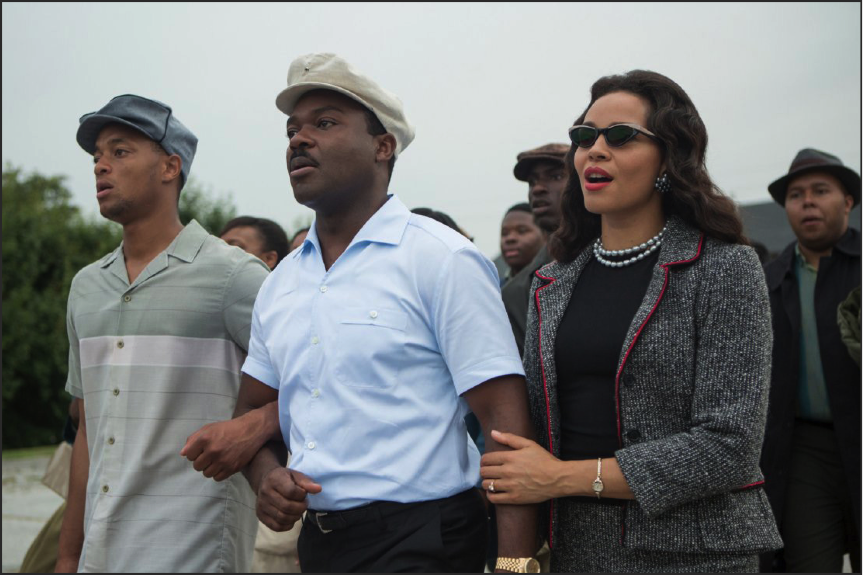Movie review: Selma
February 18, 2015
While every half-educated American knows the story behind Martin Luther King Jr., “Selma” offers audiences a refresher in how significant his movement was.
“Selma” is based on the true story of King’s (David Oyelowo) march from Selma, Ala., to Montgomery – more specifically, everything that led up to it, from excessive police force to hate crimes. But it’s more than a history lesson. It’s a dramatic retelling of the events that happened in Selma in 1965.
It’s one thing to know that black citizens in Alabama were systematically disallowed to vote, for example. But to see Annie Cooper (Oprah Winfrey) have to name each of Alabama’s 67 judges before being allowed to register gives the struggle a human element that our generation never got to experience.
But attached to that are certain one-off scenes that don’t contribute to the plot. For example, early on King calls his mom, asking her to sing to him to relieve his stress. She proceeds to sing a gospel hymn and then essentially disappears for the rest of the film.
While the scene is great in its own right, it doesn’t really add anything to the story. The voter registration scene with Annie Cooper is important because it gave an introduction to an important plot device. By comparison, the singing is out of place and unnecessary.
Other scenes, such as montage-esque dinner scenes and introductions to unimportant characters such as Viola Liuzzo (an important civil rights activist who has no impact to the plot of “Selma”), needlessly increase the length of this two-hour film. Rather than King’s mom singing him to sleep, we could get more screentime with Liuzzo, who was important enough to the grand scheme of King’s movement that she was referenced in the end-of-the-movie “what happened after” section.
“Selma” wasn’t a movie that broke ground. Its acting was solid and its writing was well done, despite its flaws, but nothing particularly exemplary. What’s important is that it is a reminder that America needed about the struggle King suffered through and endured for what he believed in, and the mark he left on American history.


